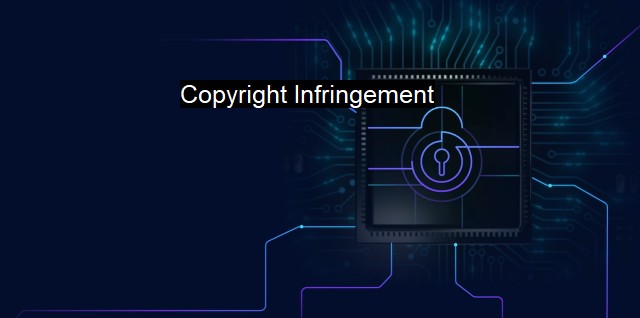What is Copyright Infringement?
Understanding the Forms and Consequences of Copyright Infringement on Online Security and Digital Protection in Cybersecurity and Antivirus Contexts
"Copyright infringement" is an act of violation of the exclusive rights given to the creators or owners of original, creative works, which are protected under copyright law. Knowing what copyright infringement is crucial, not only for individuals but also for businesses because it impacts various aspects of the digital landscape, particularly cybersecurity and antivirus landscapes.Copyright law encourages creativity by offering exclusive rights to creators or copyright holders. These privileges include the right to reproduce the work, to prepare derivative works, to distribute copies to the public and to perform or display the work publicly. When these rights are infringed upon - when a creative work protected by copyright law is copied, retransmitted, or utilized without permission from the copyright holder - it constitutes copyright infringement.
Understanding copyright infringement in a cybersecurity context underscores the interplay between information security and intellectual property law. Offensive activities like hacking into systems, stealing information, or tampering with IT infrastructure can also involve unauthorized use of copyrighted material. For instance, malicious activities such as cyber-attacks might be carried out via software that violates the copyright applied to it. viruses or malware may be embedded into copyrighted material which is illegally distributed, thus bridging the divide between copyright infringement and cybersecurity.
The rise in copyright infringements has prompted several nations to pass laws, creating a safer environment for intellectual property rights. while measures such as the Digital Millennium Copyright Act (DMCA) are intended to help protect and enforce copyright, the relationship between intellectual property infringement and cybersecurity remains complex.
Many cases of copyright infringement involve unauthorized downloads of copyrighted material whereby cybercriminals utilize Peer-To-Peer (P2P) file-sharing networks, chat apps, or other outlets to circulate pirated material laced with viruses or malware. As such, copyright infringement often goes hand in hand with other cybercrimes. In many instances, cyber thieves use illegal downloads as bait, in which users believe they're downloading a movie or a piece of software, for instance, but are in fact unknowingly inviting a malicious file onto their systems.
The field of antivirus protection intrinsically connects to copyright infringement as such threats necessitate appropriate countermeasures. Antivirus software developers have to consistently update their programs with the latest malware definitions to recognize new threats, including copyright-infringing malware. This includes watching for counterfeit versions of their software being distributed online. Public education about the pitfalls of copyright infringement also plays a vital role in preventing malicious activities.
When dealing with pirated software within a cybersecurity framework, there is nearly always a risk attached. Pirated applications often come from sketchy websites with questionable security measures. Downloading software from these outlets significantly increases the probability of infecting a computer with a virus, trojan or other types of malicious software.
Importantly, copyright laws can serve in deterrence, by making it illegal to distribute pirated software, music, films and more - thus discouraging individuals from engaging in the behavior in the first place. More than just protecting the interests of creators, deterring copyright infringement can be seen as an integral part of an effective cybersecurity strategy.
Whether in the form of pirating music, movies, books, or software, copyright infringement is illegal activity that can potentially comprise serious cybersecurity threats. Understanding these risks when partaking in unlawful online share/download empowers individuals and organizations with the knowledge necessary to safeguard with effective cybersecurity measures. Through vigilant antivirus protocols, careful behaviors, and public awareness, it's possible to mitigate the dangers of copyright infringement to individuals and larger systems alike. Despite growing efforts, there isn't a one-size-fits-all solution to both copyright infringement issues and their linked cybersecurity challenges, and constant vigilance remains crucial.

Copyright Infringement FAQs
What is copyright infringement?
Copyright infringement is the unauthorized use or reproduction of someone else's original work, such as music, images, videos, software, or written content, without their permission.How does copyright infringement relate to cybersecurity and antivirus?
Copyright infringement on the internet can be a cybersecurity threat, as it often involves downloading or sharing malicious software, viruses, or malware. Antivirus programs can help detect and prevent these threats.What are the consequences of copyright infringement?
The consequences of copyright infringement can include legal action, fines, penalties, and even criminal charges in some cases. It can also damage the reputation and financial stability of the parties involved, such as individuals, businesses, or organizations.How can I avoid copyright infringement?
To avoid copyright infringement, you should always obtain permission from the copyright holder before using their work. You can also create your own original content or use works that are in the public domain or licensed under Creative Commons. It's also important to be aware of the copyright laws and regulations in your country.| | A | | | B | | | C | | | D | | | E | | | F | | | G | | | H | | | I | | | J | | | K | | | L | | | M | |
| | N | | | O | | | P | | | Q | | | R | | | S | | | T | | | U | | | V | | | W | | | X | | | Y | | | Z | |
| | 1 | | | 2 | | | 3 | | | 4 | | | 7 | | | 8 | | |||||||